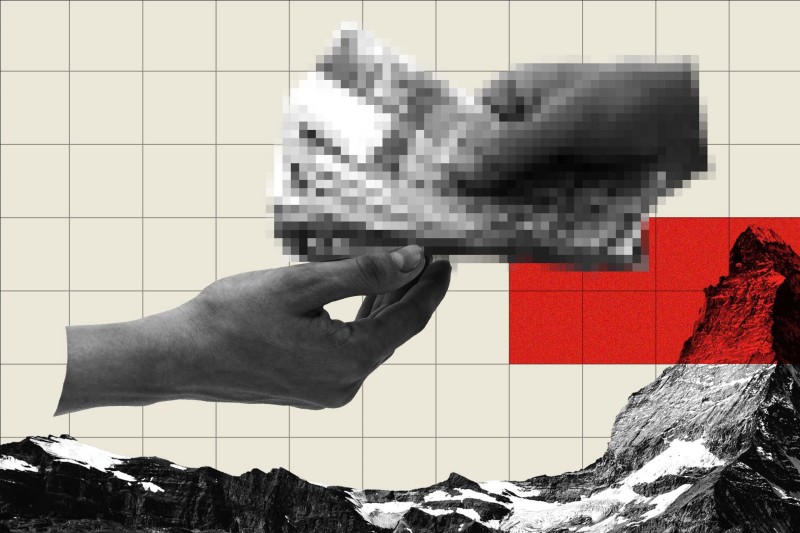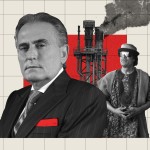It was more than a decade ago when we at the Organized Crime and Corruption Reporting Project came to understand that we needed to follow the banks if we were to effectively follow the money and properly expose serious crime and corruption.
The more we investigated despots, mobsters, crooked politicians, and transnational organized crime networks, the more we saw the toxic role played by some of the world’s largest banking corporations in enabling the individuals destroying hopes for democracy, equity, and social justice in one country after another.
Political regime change? The end of communism in Eastern Europe? The Arab Spring? Criminal charges? Corruption and tax evasion scandals? International sanctions? Rigged elections? Documented human rights violations? Time and again, the corrupt and criminal have been able to overcome adversity and prevail, thanks in part to the fact that their financial might was secured in secret vaults, databases, and a multitude of financial instruments and investment schemes held at major international banks.
The ability to keep their money and financial possessions safe “no matter what” is the secret superpower of kleptocrats and criminals. It is what allows them to weather bad times, continue exerting their influence in the shadows, and eventually bounce back with even more callousness than ever. They hide behind secretive offshore companies to buy industrial assets, banks, and even media outlets in order to amass new political power and influence. They become criminal angel investors as their black money finances even more wrongdoing and corruption.
They don’t keep their money in the countries where they stole it. They want safety, security, reassurances, and no questions asked about the origin of their funds. They need solid investment strategies, access to innovative financial instruments, and levels of privacy that ordinary people can only dream about. Bankers become chief financial officers, serving illicit interests.
The resilience of corrupt systems is deeply rooted in the secrecy provided by large global banks that continuously fail to implement adequate “know your customer” (KYC) and “know your customer’s customer” (KYCC) regulations, or act on them. These rules are meant to keep politically exposed persons and law-breakers out of their systems.
I remember, back in 2010, when I witnessed first-hand the resistance to reforming or improving outdated KYC and KYCC practices. At the time I was a member of the World Economic Forum’s Global Agenda Council on Illicit Trade and Organized Crime. I gave a presentation to a group of high-level bankers from some of the world’s largest financial conglomerates about how organized crime and corrupt politicians were using their banks for large-scale money laundering, theft, and bribery. I was immediately met with distrust and given condescending lectures about how what I was describing was not possible given the excellent due diligence firewalls their banks had already put in place.
They have been proven wrong many times since. Starting in 2011, OCCRP and its partners have investigated the “Laundromat” series of scandals, exposing how enormous volumes of ill-gotten money flowed through these banks. Our investigations ultimately led to some increased acknowledgement of the problem and some changes to how compliance was conducted at global behemoths like Deutsche Bank and others. But by the time they started this timid patchwork, the damage was already done.
One thing that surprised me during the Laundromat investigations was how cheap corruption was in the West, and how relatively small amounts of money could wreak havoc in developing countries. We analyzed over $100 billion worth of banking transactions linked to organized crime, political corruption, or sanctions-busting in countries like Russia, Iran, Turkey, or Azerbaijan. Meanwhile, only very small amounts, somewhere in the range of tens of millions, entered the pockets of European Union politicians or their counterparts in the United States and elsewhere.
The bulk of the illicit wealth was always at the disposal of oligarchs, transnational organized crime groups, and their affiliated politicians. What amounted to pocket change for them could transform everything for the worse for people being robbed in the countries where the money originated.
In exchange for a cut, Western politicians put their seal of approval on fraudulent elections, lobbied for dictators, and allowed kleptocrats to stay in power and continue to rob and abuse their people. Banks turned a blind eye to corruption and crime and kept on aiding and abetting these practices.
Our Suisse Secrets investigation is further proof of the enabling role played by large banks in providing privacy, safety, and security to the rich and criminal to the detriment of the vulnerable. Credit Suisse, one of the oldest and most respected banks in the world, safeguarded the financial might of some of the world’s worst: criminals, dictators, intelligence officials, sanctioned parties, and political actors with outsized wealth.
The Credit Suisse business model was endorsed and protected all along the way by Swiss politicians, who legalized some of the harshest penalties — years in jail and huge fines — for breaches of banking secrecy and privacy, no matter what the public interest was. This is why we don’t have Swiss media partners in an investigative project about one of Switzerland’s most prominent financial institutions.
Muzzling the media is a kleptocrats’ dream. Russia, Azerbaijan, Turkey, and, most recently, Kyrgyzstan are slowly killing off investigative reporting. Meanwhile Switzerland, a country in the heart of Europe, years ago ensured the silence of its journalists by crippling their ability to follow the money — and to follow the banks.
On top of all this, following the banks might already not be enough. Credit Suisse and other large banks all over the world have already dipped their toes into cryptocurrency, decentralized finance, and the incipient “web3” realm.
This poses new challenges for investigative reporters who need to change and adapt their strategies to efficiently follow the numerous crypto and other exchanges and trading platforms where big business increasingly takes place.
To fight a superpower, you need a superpower. We need to make investigative reporting into one. We need to become kryptonite for kleptocracy.




